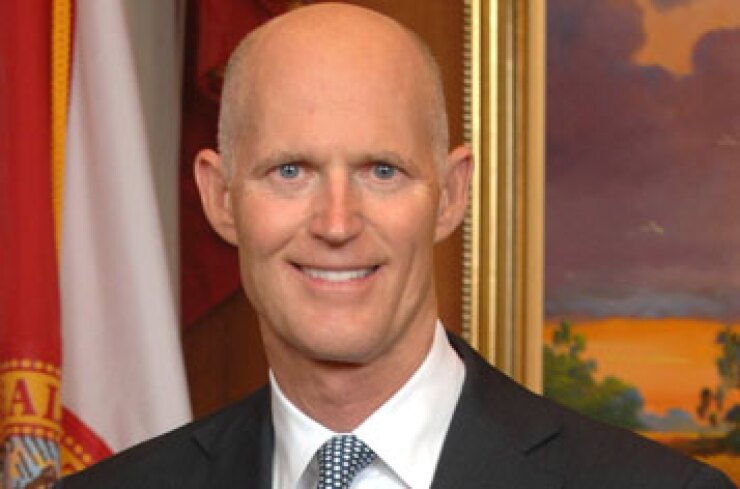
BRADENTON, Fla. — Florida Gov. Rick Scott has ordered state agencies to prepare lists of "critical state funding needs" in the event there is a government shutdown on July 1.
Scott, a Republican, issued departmental memos on May 14 to make contingency plans for the absence of a budget amid an impasse stemming from disagreements over whether to expand Medicaid.
Leaders of the House and Senate - both GOP controlled- have already agreed to call a 20-day special session starting June 1 to iron out fiscal 2016 budget differences, which center on Medicaid expansion and the pending loss of federal funds for low-income hospital care.
"I believe the debate on how to increase access to healthcare while lowering cost and improving quality is an important one to have," Scott said. "However, it will need to be much longer and more thoughtful than we have time to accommodate during a budget special session."
The Florida Legislature's regular session ended late last month without passing the fiscal 2016 budget in part because the state faces the loss of $1.3 billion in federal funds that have been used to pay hospitals for treating people who qualify under the Low Income Pool program. The LIP program is set to expire June 30.
To prepare for the end of the LIP program, Senate President Andy Gardiner, R-Orlando, and his chamber created the Florida Health Insurance Affordability Exchange. FHIX, which still needs federal government approval, would require enrollees to prove annually that they are working, volunteering, going to school, or actively looking for a job.
The Senate's $80.4 budget proposal includes FHIX, which was expected to draw down more federal funding than the LIP program.
The House's budget plan totaled $76.2 billion, and did not include a plan to expand Medicaid to cover low-income Floridians who fall in the gap that prevents them from qualifying under the Affordable Care Act or Medicaid.
"We are at an unfortunate impasse," House Speaker Steve Crisafulli, R-Merritt Island, told the Senate on April 28 after adjourning his chamber three days before the scheduled end of the regular session.
The same day, Scott asked the U.S. District Court for a preliminary injunction to stop the Obama administration from ending LIP funding because he believes it is unconstitutionally tied to the Affordable Healthcare Act and the expansion of Medicaid, according to court documents.
Texas Gov. Greg Abbott and Kansas Gov. Sam Brownback have filed amicus briefs supporting Florida's suit.
Since the Legislature's meltdown, Scott has made two trips to Washington, D.C., seeking to salvage LIP funding through meetings with Health and Human Services Secretary Sylvia Burwell and federal lawmakers.
Scott also appointed a nine-member Commission on Healthcare and Hospital Funding to "investigate the role of taxpayer funding for hospitals, insurers, and healthcare providers." In addition, he sent letters to Florida hospitals asking them to come up with funds in case the state loses the federal LIP program.
The healthcare funding stalemate could lead to the Sunshine state's first governmental shutdown since 1992.
Gilt-edged Florida has four bond deals waiting to be issued on the competitive day-to-day calendar. Officials have not said if the budget impasse could hamper those sales.
Rating agency analysts have often recognized Florida for conservative fiscal management and prompt attention to changes in revenues in order to maintain a balanced budget. The state had $24.2 billion of direct debt outstanding as of June 30, 2014.





